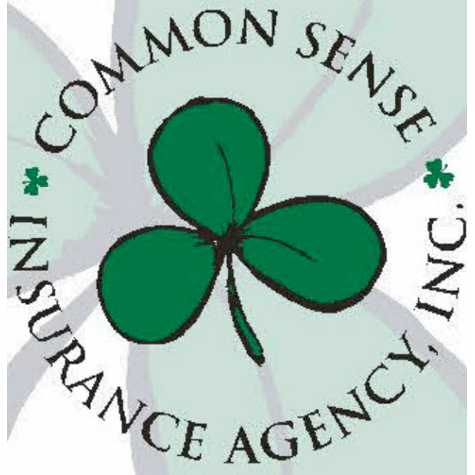Property rates possibly rising. Good article explaining why.
https://www.crcgroup.com/Tools-Intel/post/property-rates-rise-as-carriers-retrench-and-prepare-for-the-changing-market?utm_source=Tools-Intel&utm_medium=email&utm_campaign=9-2020?portalid=34
CRCGROUP.COM
www.crcgroup.com
https://sba.thehartford.com/managing-employees/remote-workers/
SBA.THEHARTFORD.COM
Younger Generations are Leading the Remote Working Charge
My other partner!
My partner is sleeping on the job! Looking for a new career, give us a call! Take charge of your future! We welcome furry visitors too!
We would love to give you a free quote! Why not give us a call? We have multiple companies to customize a policy specifically for you! 763-557-6726. Maybe we can seven save you a buck or two?
Safety deposit boxes, are they safe?
Jewelry is certainly safe in a bank vault: Yes/No?
Many people think that a safe deposit box is the best possible place for their valuables.
The jewelry is in a bank, it's behind thick security doors, you have to sign in to get access, and the box requires two keys to open — the bank has one key and the customer has the other. What could go wrong?
Lots, as it turns out! Some very unexpected things have happened to safe deposit boxes and contents have gone missing. Here are a few shocking incidents:
An internationally known expert in the history and restoration of high-end watches had been collecting unusual watches since he was a teenager. A safe deposit box in his neighborhood bank seemed like the best place to keep them. He would add to the box from time to time over the years. Then one day he opened the box and found it empty. He estimated the value of the loss at $10 million.
Burglars entered through the roof.
In another case, a bank notified its customers to clear out their boxes in preparation for a move to a new branch. At least six customers opened their safe deposit boxes to find more than $500,000 in diamonds, jewelry and gold coins missing.
One family used a bank box to store jewelry that came with them when they escaped from Nazi Germany. The collection was appraised in the mid-six figures. When two grandchildren recently opened the box they were stunned to find not their grandparents' irreplaceable items, but someone else's belongings.
A prominent physician reported that thieves took from his bank box 270 one-ounce gold Canadian Maple Leaf coins and South African Krugerrands worth $432,000. Oddly enough, thirty of the coins were replaced with counterfeits, according to court documents.
There have been several cases where robbers got to safe deposit boxes by entering an adjacent property and drilling through a wall into the bank. Such an entry is all the easier when the boxes are in merely a separate room of the bank, rather than in a vault that is secure on all six sides.
Burglars have also used blowtorches to enter through the roof — just like in the movies! In one case, the thieves even constructed a plywood shed on the roof to hide what they were doing.
But even the heaviest vault walls are not impregnable. A few years ago a highly secure underground vault at Hatton Garden Safe Deposit Ltd., in the heart of London's diamond district, was robbed over a four-day Easter-Passover bank holiday. In a complex scheme involving three years of preparation, various disguises, heavy-duty tools, and diverse burglary expertise, a team of six thieves entered through an elevator shaft and drilled through a 20-inch thick vault wall. Their haul was estimated at $300 million, the largest bank heist in British history.
In a much simpler scam a thief posed as a jeweler, leased a box, and looted other boxes when no one was looking. In another case, two of a bank's security guards made duplicate keys for a number of boxes.
There have been several reports of a bank drilling its safe deposit boxes and removing contents without notifying customers or receiving their permission. One woman said that when the contents of her box was finally shipped to her, everything had been just dumped into a plastic bag. A ring was missing its stone and a necklace was damaged in the process. Another family said that the contents shipped to them was missing jewelry valued at $17,000.
A woman had a safety deposit box for 16 years. One day she went to open it and found that the entire box was gone. The bank had no explanation for its disappearance.
How can this be?
Bank Security Report, an industry newsletter, suggested some years ago that a new breed of thieves may be targeting safe deposit boxes. "Many safe deposit robberies are apparently being perpetrated not by intruders, but by bank customers: renters of safe-deposit boxes who gain access to others' boxes," the newsletter reported.
Deposit boxes and debris left by burglars
Some of the incidents are obviously a result of bank mismanagement. Several people whose bank boxes were drilled by the bank said they never received advanced notice from the bank, which was required by the bank's own regulations.
In at least one case, the box was drilled and its contents removed for non-payment of rent — but it was the wrong customer's box.
One woman said the bank accidentally re-rented her box. Her jewelry, including a diamond necklace, was never found.
The man whose box held his lifelong collection of valuable watches eventually got most of them back from the bank. But several were still missing — and some watches in the cache he received from the bank were not his.
What's the customer's recourse? Basically, none.
In the highly regulated banking industry, the estimated 25 million safe deposit boxes operate in a legal gray zone.
There are no federal laws governing these boxes. The contents are not FDIC insured. Banks are not required to compensate customers if their property is stolen or destroyed.
The bank's very limited liability may be described in the fine print of the box-leasing agreement.
One couple's bank box loss included 44 loose diamonds, a gold and diamond necklace, valuable coins, and more than $24,000 in rare US currency. Their lawsuit against the bank sought $7.3 million. The bank presented its lease agreement, which stated: "The bank's liability for any loss in connection with the box for whatever reason shall not exceed ten (10) times the annual rent charged for the box." Based on this, the judge awarded a compensation of $2,360 for the lost items and $150,000 for damages.
This is good for commercial property owners to know as the market brings changes and educating yourself helps to understand the current situation as it applies to your premium.
https://www.crcgroup.com/Tools-Intel/post/property-rates-rise-as-carriers-retrench-and-prepare-for-the-changing-market?utm_source=Tools-Intel&utm_medium=email&utm_campaign=9-2020?portalid=34
CRCGROUP.COM
www.crcgroup.com
For those that ask why.......
Common Sense Insurance Agency, Inc.
December 7, 2020 at 1:08 PM ·
Q and A / Common Sense Insurance.
Why does my car insurance go up?
Sometimes carriers increase their rates to make up for large sections of losses in areas of the country.
In addition,car insurance rates are going up across the board. There are a number of reasons for this, and they largely relate to the higher cost of repairs, increased accidents, higher expenses in medical care, distracted and uninsured drivers and weather disasters. ( hail )
Another reason car insurance can go up for no apparent reason is when the named insured has
had a change in their credit.
Insurance scores are used by many carriers to rate policies. This is a number derived from the insured's credit, and which is allegedly predictive of how risky a driver (or homeowner)
is.
Q and A / Common Sense Insurance.
Why does my car insurance go up?
Sometimes carriers increase their rates to make up for large sections of losses in areas of the country.
In addition,car insurance rates are going up across the board. There are a number of reasons for this, and they largely relate to the higher cost of repairs, increased accidents, higher expenses in medical care, distracted and uninsured drivers and weather disasters. ( hail )
Another reason car insurance can go up for no apparent reason is when the named insured has
had a change in their credit.
Insurance scores are used by many carriers to rate policies. This is a number derived from the insured's credit, and which is allegedly predictive of how risky a driver (or homeowner)
is.
Q and A / Common Sense Insurance.
Why does my car insurance go up?
Sometimes carriers increase their rates to make up for large sections of losses in areas of the country.
In addition,car insurance rates are going up across the board. There are a number of reasons for this, and they largely relate to the higher cost of repairs, increased accidents, higher expenses in medical care, distracted and uninsured drivers and weather disasters. ( hail )
Another reason car insurance can go up for no apparent reason is when the named insured has
had a change in their credit.
Insurance scores are used by many carriers to rate policies. This is a number derived from the insured's credit, and which is allegedly predictive of how risky a driver (or homeowner)
is.





